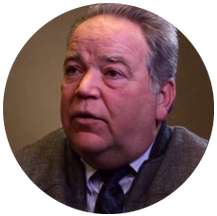Let’s start with a few inconvertible truths. Seniors constitute the fastest growing segment of gamblers in the country. Of the 101 million people who rang up $66 billion in casino gambling revenues in 2014, nearly half were age 50 or older. In other words, golden agers look like golden geese to casino operators.
A 2011 study published in the Journal of Gambling Studies captured the reality that, for many seniors, casinos act as a pain-reliever for loneliness and grief, especially for older women. Perhaps their spouse is deceased or they’ve endured a painful divorce, they’ve retired from work, their grown children are busy with their own families. Often, the sadness and isolation may seem like more than they can bear.
Just like the TV series Cheers, humans often gravitate to places “where everybody knows their name.” As clinical gero-psychologist Dennis McNeilly from the University of Nebraska Medical Center recently told American Association of Retired Persons magazine (AARP) in an interview, the “hospitality” extended by casinos could have a significant impact on their behavior.
And, casinos clearly know how to entertain seniors. Think oxygen tank hook-ups, wider “wheelchair width” aisles, needle refuse boxes for diabetics, special birthday promotions, loyalty rewards and even bus shuttles that magically appear right around the time that Social Security checks arrive each month.
Casinos cash in on the Trifecta of attracting – some would argue seducing – older adults.
Take, for example, the specially designed addictive properties of slot machines. Carefully crafted to hold your attention for as long as possible, slots earned the cognomen “electronic crack” after a 2001 study confirmed through MRI scans that people playing slots had brain reactions identical to people using cocaine.
Seniors may be even more susceptible prey because of age-related cognitive decline. Nearly two million people 70+ are estimated to be impaired to some degree by undiagnosed dementia. A 2012 study found that anatomical and chemistry changes in the brain, especially in the frontal region that controls executive functioning, can make people even more vulnerable to the power of the slot machine.
Neuroscientist Michael Hornberger describes the impairment of impulse control and reward system as a “perfect storm” that lead to the tumult of pathological gambling.
Sadly, as was experienced by one of Maryhaven’s gambling patients, this perfect storm can leave mass destruction in its wake. An addicted elderly widow who eventually sought treatment first lost her home, her retirement savings and her independence. She’s now forced to live with her children and depend upon them for basic necessities.
I encourage mature adults to set aside the stigma or embarrassment of admitting you might have an issue. Take our self-test. If you need help and are a resident of Franklin County, our services are free and confidential.
Please beware: Your golden years should not leave you golden-fleeced.

